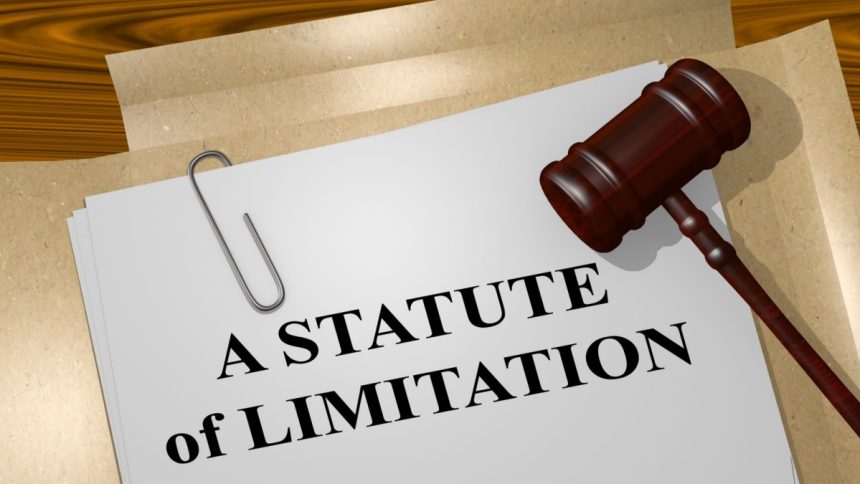In Washington State, you might find that you have a reason to sue someone. Perhaps you’re suing a business entity if they made a product that hurt you or made you ill. However, you should also know about the statute of limitations when it comes to such matters.
Abiding by the statute of limitations in legal matters sometimes becomes difficult if you took some time to decide whether you would sue a person or entity. It’s not a decision you can make lightly. Maybe it took you weeks or months to arrive at the conclusion that you would hire a skilled personal injury lawyer and move forward.
This leads to the question of whether you can ever file a civil action in Washington State if the statute of limitations passed. It is a potentially complicated question, and we’ll address it now.
What Does the Term “Civil Action” Mean in This Context?
First, let’s take a moment to talk about the term “civil action.” If you must appear in court, you might do so for one of two reasons. If you’re there because the police accused you of some criminal action, you can plead guilty or contest the charges. In that case, you’re appearing because of a criminal matter.
If you sue someone or if someone sues you, that’s a civil action. Civil and criminal actions have different rules and procedures attached to them. If the police say you broke the law, you might face criminal penalties. However, you could also face a civil action for the same reason.
For instance, if you drove drunk, you broke the law, and that’s a criminal matter. If you hit a vehicle and injured someone and they sue you for that, that’s a civil matter. You’re looking at both criminal and civil charges stemming from the same incident.
What About the Statute of Limitations?
The term “statute of limitations” means how long you legally have to sue a person or entity that you allege harmed you. For instance, if you bought a product from a company and it made you ill or injured you, then you can certainly sue the entity that made it.
In such an instance, you’re alleging the company either knew or should have known about the defective product. You are trying to collect damages from them as compensation for your pain and suffering, lost wages if you had to miss work, etc.
Most states give you a good long while to decide if you want to sue a person or business entity, though. The court system usually feels that if someone harmed you, you should have the opportunity to pursue justice through monetary compensation, even if they don’t give you forever to make up your mind.
What’s the Typical Statute of Limitations for Filing a Civil Lawsuit in Washington State?
Various states and parts of the country have different statutes in place regarding personal injury lawsuits, also called civil actions. Usually, though, they’re almost equal to each other in the US, regardless of state or region.
In Washington State, you usually have two years to file a civil lawsuit against someone if you allege that they defamed you. If you’re suing because of trespassing, fraud, damage to property, or personal injury, though, you have three years.
That sounds like a long time. Usually, you can decide with no issues whether to sue someone if you have 2-3 years to make up your mind following a situation where you allege that they harmed you or did something else that negatively impacted your life. It might surprise you if that time passes very quickly, though.
For instance, maybe someone did something that harmed you, but you do not realize the extent of the damage for many months after the initial injury. Perhaps you thought you would recover fully. Because of that, you did not want to go through the trouble of dragging the responsible party into court and putting your life on hold to deal with the matter.
If you find out a couple of years after the initial injury that you’ll never get back to your former self, though, that might finally convince you that you should sue. If you passed beyond the statute of limitations, though, you’re usually out of luck. However, you should know about some notable exceptions.
You Can File After the Statute of Limitations Expired if You Were in a Coma
If someone hurt you in Washington State, and you’re in a coma after the incident, the clock on the statute of limitations doesn’t begin running until you wake up and regain control of your faculties. For example, maybe a drunk driver hit you and you went into the coma immediately after that.
You can’t decide whether to sue them or not when you’re in a coma, so the clock only starts when you wake up. In such a situation, you might decide to sue almost immediately after you regain consciousness.
You Are Underage
You can also sometimes file a lawsuit if someone harms you, but you’re under the age of legal adulthood at the time. Someone else can file on your behalf before you come of age, like a parent.
If they elect not to, though, you can usually file a lawsuit against the guilty party when you turn 18. This doesn’t happen often, but you see such cases work their way through the court system from time to time.
Fraudulent Concealment
You can also usually file a civil lawsuit against a person or entity that harmed you if they took action to conceal their culpability, and you only find out about the part they played in your injury or illness after the statute of limitations passes. This type of thing also occurs relatively rarely, but it’s not impossible.
In any of these situations, it makes sense to contact an excellent personal injury lawyer to get their opinion before moving forward.
Lynn Martelli is an editor at Readability. She received her MFA in Creative Writing from Antioch University and has worked as an editor for over 10 years. Lynn has edited a wide variety of books, including fiction, non-fiction, memoirs, and more. In her free time, Lynn enjoys reading, writing, and spending time with her family and friends.















